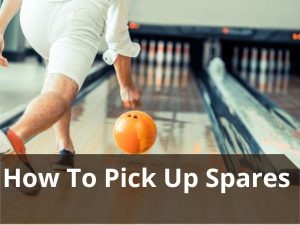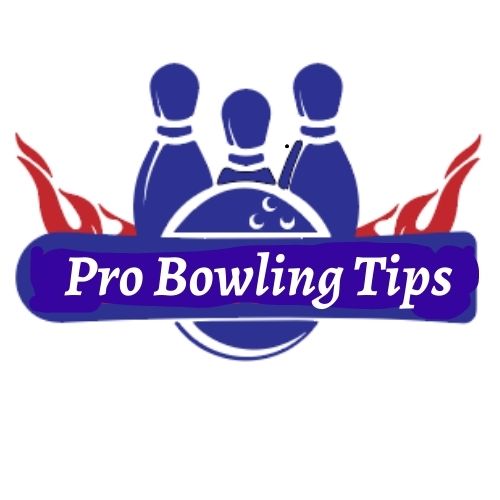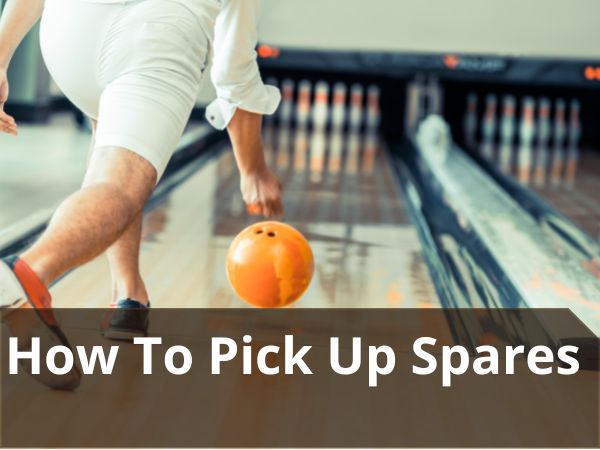How to choose right spare bowling ball? Do you get those annoying splits all the time? Let me guess, you struggle to knock them down, don’t you? So what kind of ball do you think will come in handy to score a perfect spare? The right kind of spare ball! So how to choose the right spare bowling ball?
Many beginners and even pro bowlers often get confused when it comes to choosing the right bowling ball. If you’re one of them, consider this article as a guideline to choose your next bowling ball for the spare shots. So without any further delay, let’s get started.

What is a Good Spare bowling ball?
Professional bowlers keep at least one spare bowling ball in their arsenal all the time. Indeed, a strike bowling ball enhances the possibility of all of your pins being knocked down, but it doesn’t guarantee that a strike will happen every time you throw it. There are often some standing pins at the end of the lane that needs to be picked up on your second frame. Hence, the spare bowling ball!
The word ‘spare’ will give you the impression that I’m talking about an extra ball. But that is not the case, to be honest. To define a spare bowling ball, I would say, it is the ball that is not as same as a strike ball and is used when your shot on the first frame has made a split happen.
So what are some of the important characteristics of a good spare bowling ball? First thing first, it needs to roll straight to your targeted pin(s). This means a bowling ball that is prone to hooking wouldn’t be your best choice for picking up the mean spares. Your spare bowling ball also needs to be less aggressive so that you can easily control its movement on the lane.
Related Post
What Does a Spare Do in bowling?
What is Spare and How it is Calculated?
How to Practice Spares in Bowling [Never Miss One!]
How heavy should your spare bowling ball be?
And now, the question that is yet to answer. Do you think your spare ball should be a bit lighter than your typical strike ball? The answer is, “No”. Let me make it clear to you.
Suppose, you use a 16 lbs bowling ball as your strike ball. But you got a 15 lbs bowling ball as your spare ball. Now, let’s say, you’re not securing so many strikes, but you’re great at picking up the spares. So, going back and forth with two different weight bowling, does it make any sense to you? Not to me, at least.
It is a common misconception among so many bowlers that your spare ball should be slightly lighter. But I believe, that is completely wrong! A bowler might think that if a lightweight bowling ball is thrown for spare shots, the ball will be more controllable and will result in more successful spares. Some might even believe that a lighter ball will have less friction, so the ball traveling will be smoother and straighter. But that is completely a misunderstanding.
When you keep on changing your ball weight in between your shots, you create the chances of a greater margin of error and more inconsistency. Who would want that, am I right?
What is the purpose of a spare bowling ball?
So what have you learned by far? Besides picking up those mean spares, can you throw a spare bowling ball any other time? Absolutely yes! So do you think spare bowling balls serve only one purpose? Not at all! Beginners, seniors, and occasional bowlers prefer using a spare ball as their strike ball and they do just fine! To clarify, a spare ball can be a strike ball, but a strike ball cannot be used as a spare ball.
Is a Plastic bowling ball best for Spare bowling?
When it comes to shooting the potential spares, remember that— “Straighter is greater”. And what kind of bowling ball is best at that? The plastic aka the polyester bowling balls! You can tell how straight plastic bowling balls are if you can recall the beginning of your bowling practice days. Bowling balls like Brunswick T-Zone Deep Space, Ebonite Maxim Northern Lights, DV8 Zombie Spare, Elite Star Purple Pearl, Hammer Black Widow 2.0, DV8 Just Black, Columbia 300 White Dot, Storm Ice Blue White, and so on.
FAQs Of How to choose right spare bowling ball!
What makes a good spare bowling ball?
A good spare bowling ball should roll straight towards your targeted pins, making it easier to pick up spares. It should be less aggressive than a strike ball to allow for better control on the lane. Plastic or polyester bowling balls are often recommended for their ability to travel straighter paths.
How heavy should your spare bowling ball be?
Contrary to common belief, your spare bowling ball should not necessarily be lighter than your strike ball. Consistency is key, so using a spare ball that is the same weight or only slightly lighter than your strike ball can help maintain your throwing consistency and reduce the margin of error.
What is the purpose of a spare bowling ball?
Besides picking up spares, a spare bowling ball can also serve as a strike ball for beginners, seniors, and occasional bowlers. It’s designed for specific situations where a less aggressive ball is beneficial, such as shooting at remaining pins with a straighter path.
Is a plastic bowling ball best for spare bowling?
Yes, plastic (or polyester) bowling balls are considered best for spare bowling because they tend to roll straighter, making them ideal for hitting targeted pins without unnecessary hooks. They are especially useful for bowlers looking to hit spares more consistently.
What are some recommended spare bowling balls?
Popular options include the Brunswick TZone Deep Space, Columbia 300 White Dot, and DV8 Just Black. These balls are known for their stability, durability, and suitability for different lane conditions, making them great choices for beginners and those looking to improve their spare pickups.
Conclusion
There is no age for learning new things! Having curiosity is what I appreciate the most. I think everyone in the bowling community appreciates that! It is important to understand bowling ball dynamics. With the information I have provided here in this article, you can easily choose the right spare bowling ball for you. I have articulated how your spare bowling ball should be. Now, use the knowledge to find the perfect fit for you. I hope this article was informative enough for you to understand one more detail of bowling and the science behind it better. So, keep on having fun and happy bowling, my fellow bowlers!

Passionate Bowler and Bowling Enthusiast
Jess Pinelli is a dedicated bowling enthusiast with a deep love for the sport that spans over 6 years. With numerous strikes, spares, and a few gutter balls under hes belt, he has honed his skills on lanes across the country. Pinelli’s journey in the world of bowling has been a remarkable one, from casual weekend games with friends to competitive league play and even a few local tournaments.
Driven by her passion for the game, Pinelli decided to channel her expertise and knowledge into the digital realm, becoming a prolific author on this bowling website. She’s your go-to source for everything bowling-related, from mastering the perfect hook to choosing the right bowling ball and even navigating the world of bowling etiquette.
When she’s not busy writing informative articles or reviewing the latest bowling gear, you’ll likely find Pinellis at her favorite local bowling alley, helping newcomers improve their game or enjoying some friendly competition with fellow bowlers. She firmly believes that bowling is not just a game but a community, and she’s committed to fostering that sense of camaraderie both online and offline.




